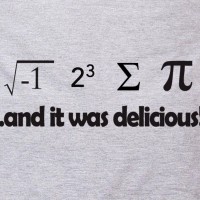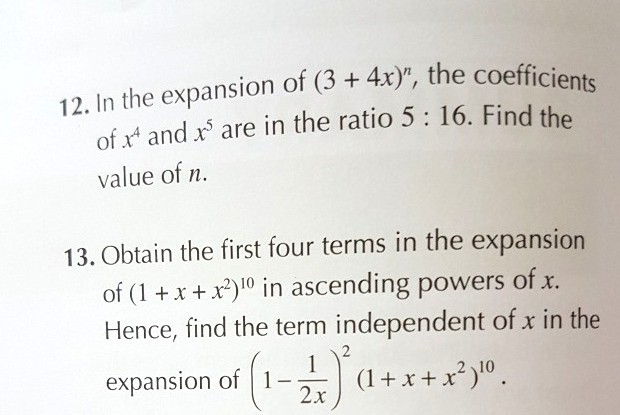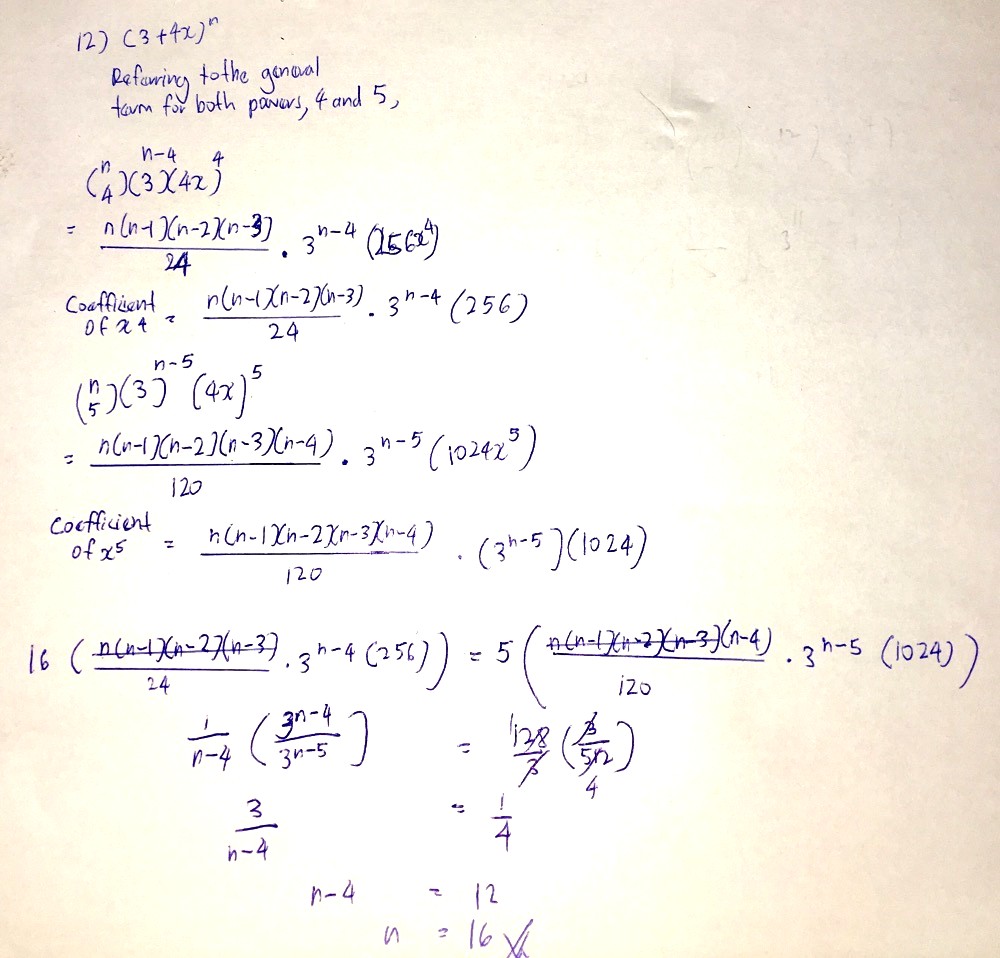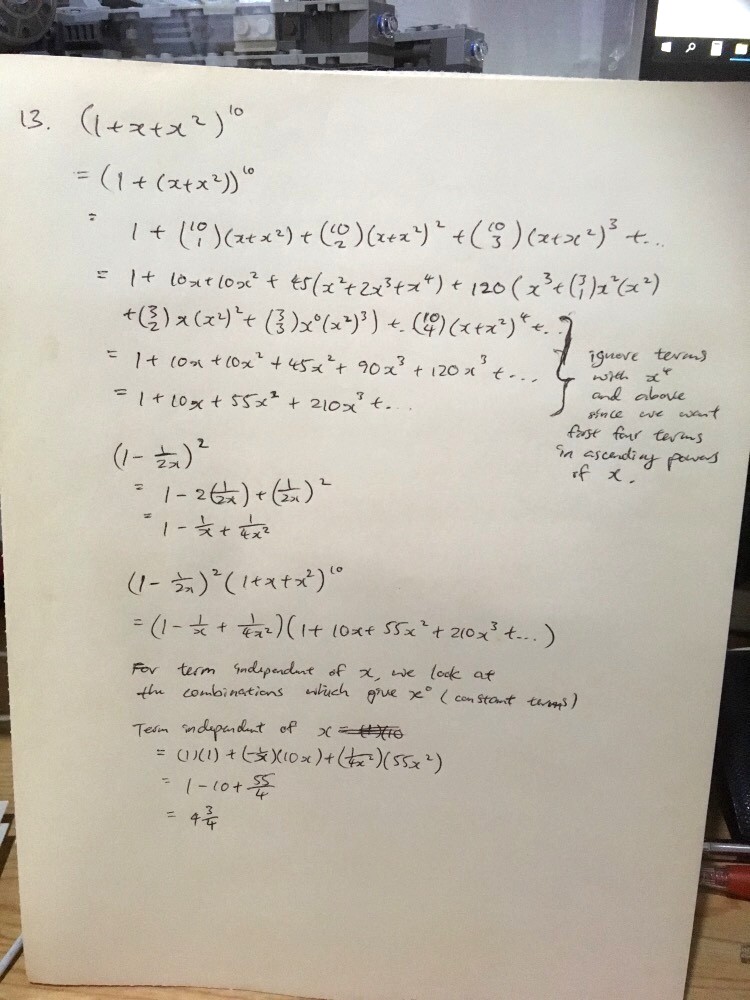Ask Singapore Homework?
Upload a photo of a Singapore homework and someone will email you the solution for free.

See 3 Answers
done
{{ upvoteCount }} Upvotes
clear
{{ downvoteCount * -1 }} Downvotes

These are the solutions needed for you to answer qn 12..I'll come back to show you the answer for the following qn in a while..
Date Posted:
5 years ago
done
{{ upvoteCount }} Upvotes
clear
{{ downvoteCount * -1 }} Downvotes

I hope this is correct..I can only think of 'complete the square' method besides factorisation and I can see that it is quite possible to do so..
Date Posted:
5 years ago
Hi, Mathaddict100, I respectfully disagree with your answer for Q13, because you have to take the expansion of (1-1/(2x))^2 into account.
Also, the 'hence' part means you have to use your expansion of (1+x+x2)^10 in solving the 2nd part. See my answer below for details.
Also, the 'hence' part means you have to use your expansion of (1+x+x2)^10 in solving the 2nd part. See my answer below for details.
done
{{ upvoteCount }} Upvotes
clear
{{ downvoteCount * -1 }} Downvotes

Done
Date Posted:
5 years ago
Thank you sir for pointing out my mistake.I understood where I went wrong.Appreciate it.I did put the other expression into account but my first expansion itself is wrong.So,it ultimately become wrong for the last part.Would you mind explaining why is completing the square method invalid while the latter should? I seriously do want to know..Thanks :)
Hi, your completed square is wrong. The completed square for x^2+x+1 should be (x+1/2)^2 + 3/4. Also, if you use completing the square method, it would be more tedious expanding (1+x+x^2)^10 because you cannot use the shorter method of expanding (1+b)^n to expand ((x+1/2)^2 + 3/4)^10.
Oh that's how it is.Yup I agree on the tediousness part.Great thanks for the explanation. :)






